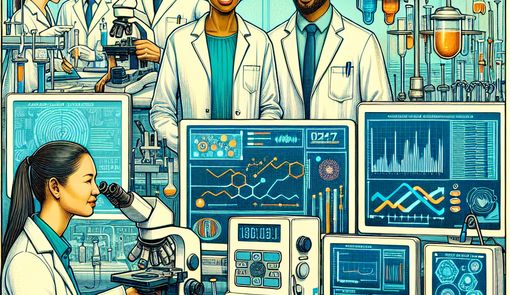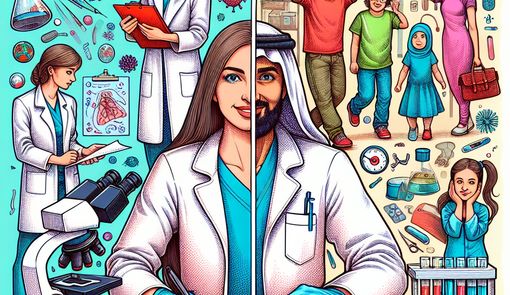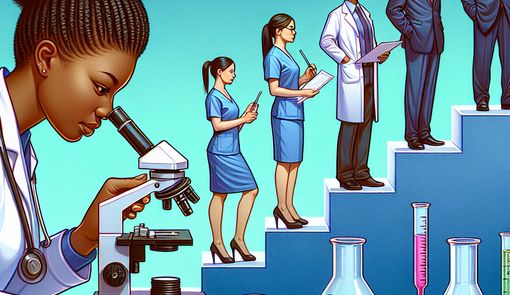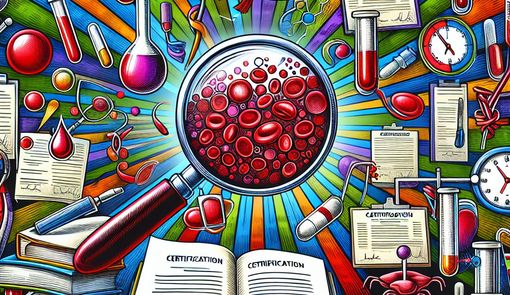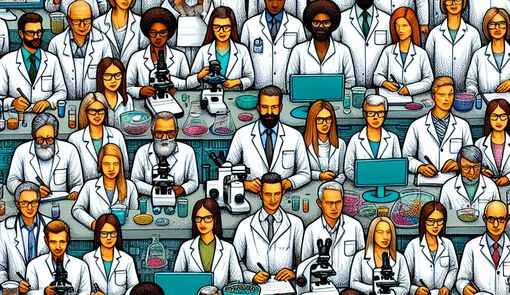Top Skills Clinical Laboratory Technologists Must Master
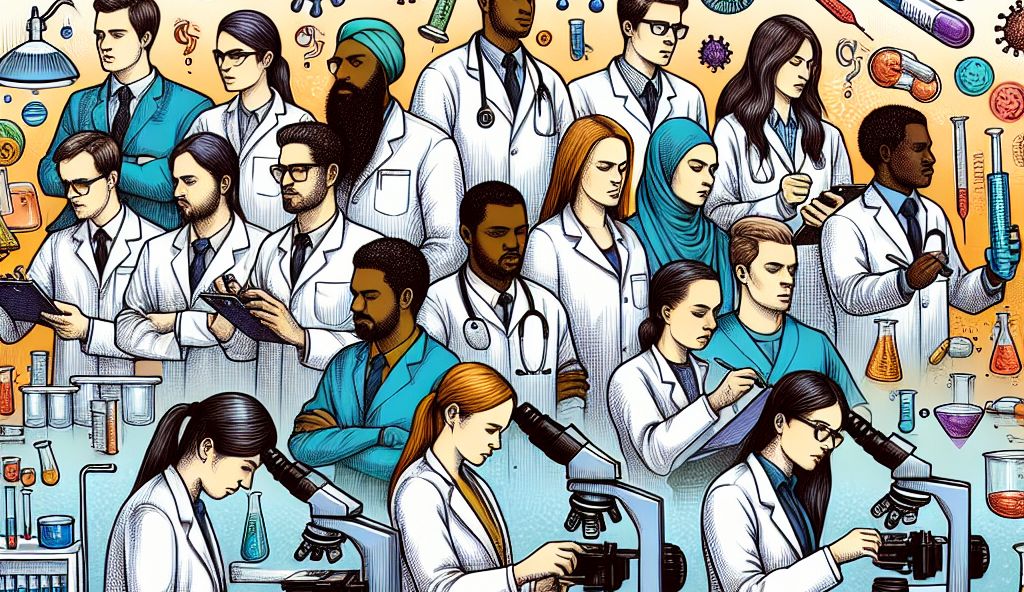
Clinical laboratory technologists, also known as medical laboratory scientists, are integral members of the healthcare team. Their work is crucial to the accurate diagnosis of diseases, and effective management and treatment of patients. With the consistent evolution of medical technologies and methodologies, these professionals must continuously update their skills and knowledge. Below is a comprehensive guide to the top skills that clinical laboratory technologists must master for success in this dynamic field.
Technical Proficiency
At the heart of clinical laboratory work is the ability to perform a range of complex tests accurately. Technologists need to be proficient in operating sophisticated laboratory equipment such as microscopes, cell counters, and automated analyzers. Mastery over techniques like ELISA, PCR, and spectrophotometry is essential. A deep understanding of how to conduct blood tests, urinalysis, immunoassays, and other diagnostic procedures is mandatory. Regular proficiency testing and continuing education are vital to maintain the accuracy and reliability of test results.
Attention to Detail
Precision is paramount when handling biological specimens. Clinical laboratory technologists need to meticulously follow protocols for specimen collection, processing, and analysis. Errors can affect patient care, so they must be skilled at verifying sample validity, ensuring calibration of instruments, and systematically recording data. The ability to notice minor discrepancies that could indicate a malfunctioning piece of equipment or an anomaly in test results can be the difference between a correct and a misdiagnosis.
Analytical Skills
Interpreting laboratory data requires strong analytical skills. Technologists must compare test results with normal ranges and understand the implications of deviations. They are often tasked with complex problem-solving when test results are inconclusive or unexpected. Being able to analyze statistical data, evaluate the effectiveness of laboratory procedures, and recommend modifications for improvement are critical skills in the modern laboratory.
Information Technology Competence
Modern laboratories rely heavily on information technology. Clinical laboratory technologists must be comfortable with Laboratory Information Systems (LIS), Electronic Medical Records (EMR), and other data management systems. Proficiency includes not just entering and retrieving data, but also understanding how to secure patient information and ensure compliance with healthcare regulations like HIPAA.
Communication Skills
Effective communication is a core competency for all healthcare professionals, and clinical laboratory technologists are no exception. They must be able to convey complex information to other healthcare providers clearly and accurately, often under time pressure. Equally important is the capacity to listen and gather information from patients, colleagues, and supervisors. Written communication also needs to be precise, whether it's documenting procedures, writing reports, or contributing to research.
Time Management and Organization
Clinical laboratory environments can be fast-paced and high-pressure. Technologists must manage their time efficiently to keep up with the workload. This includes prioritizing tasks, maintaining an organized workspace, and being adaptable to changing situations. An adept clinical laboratory technologist is one who can handle multiple projects simultaneously without compromising on the quality of work.
Teamwork and Collaboration
Collaboration with other healthcare professionals is key to delivering comprehensive patient care. Clinical laboratory technologists must be able to work effectively within interdisciplinary teams, contributing to patient care conferences, and aligning laboratory work with treatment plans. The ability to work harmoniously with different personalities and professional backgrounds is an important aspect of the job.
Ethical and Legal Standards
Clinical laboratory technologists are bound by a code of ethics and legal standards that guide patient confidentiality, consent, and the reporting of results. They must understand and adhere to these regulations while also advocating for the best interest of patients. Ethical dilemmas can arise, and it is important for technologists to be equipped to handle these situations with integrity and professionalism.
Stress Management
Given the nature of the work, clinical laboratory technologists often experience stressful situations. They must remain focused and composed, especially when test results may have significant implications for a patient's health. Developing strategies for managing stress and maintaining emotional stability is vital to success in this field.
Continuous Professional Development
Finally, the field of Clinical Laboratory Technology is ever-changing. As new diseases emerge and new technologies are developed, ongoing learning and professional development are non-negotiable. Attending workshops, seminars, and courses, and keeping up with the latest research findings allows technologists to stay ahead in their field.
Clinical laboratory technologists play a critical role in patient care and medical diagnostics. The skills mentioned are not exhaustive but provide a framework for the proficiencies needed to excel in this complex and rewarding profession. Those who master these skills will be well-equipped to contribute significantly to the healthcare industry and patient wellness.
Frequently Asked Questions
What is the role of a clinical laboratory technologist?
Clinical laboratory technologists, also known as medical laboratory scientists, play a vital role in the healthcare system. They are responsible for performing complex tests on various biological samples to assist in the diagnosis, treatment, and prevention of diseases.
What are the essential skills required for a clinical laboratory technologist?
Clinical laboratory technologists need to have technical proficiency in operating laboratory equipment and conducting tests accurately. They must also possess attention to detail, strong analytical skills, information technology competence, effective communication skills, time management and organizational abilities, teamwork and collaboration skills, adherence to ethical and legal standards, stress management capabilities, and a commitment to continuous professional development.
How important is attention to detail in the work of a clinical laboratory technologist?
Attention to detail is extremely important in the work of a clinical laboratory technologist as even minor errors in specimen handling or analysis can lead to incorrect results and misdiagnosis. Meticulous attention to protocols, sample verification, and data recording is essential to ensure the accuracy and reliability of test results.
Why is continuous professional development crucial for clinical laboratory technologists?
Continuous professional development is essential for clinical laboratory technologists to stay updated with the latest advancements in medical technology, procedures, and regulations. Ongoing learning allows technologists to provide the best possible care to patients, contribute to research and innovation, and maintain high standards of practice in the field.
How can clinical laboratory technologists manage stress in their work environment?
Given the high-pressure and critical nature of their work, clinical laboratory technologists can manage stress by developing coping strategies such as maintaining a healthy work-life balance, practicing mindfulness or relaxation techniques, seeking support from colleagues, and engaging in activities outside of work that promote mental well-being.
What are the ethical standards that clinical laboratory technologists must adhere to?
Clinical laboratory technologists are required to follow strict ethical standards regarding patient confidentiality, informed consent, and accurate reporting of test results. They must uphold patient rights, maintain professionalism in their interactions, and ensure the security and privacy of sensitive medical information.
How can clinical laboratory technologists enhance their communication skills?
To improve communication skills, clinical laboratory technologists can practice active listening, clarify complex information in simple terms, seek feedback from peers, attend communication workshops or courses, and engage in regular interactions with healthcare team members to convey information effectively.
What role does teamwork play in the work of clinical laboratory technologists?
Teamwork is essential for clinical laboratory technologists to collaborate effectively with other healthcare professionals, share insights on patient cases, and ensure coordinated patient care. By working in interdisciplinary teams, technologists can contribute their expertise to comprehensive treatment plans and enhance the overall quality of healthcare delivery.
Further Resources
For readers interested in further enhancing their knowledge and skills in the field of Clinical Laboratory Technology, the following resources provide valuable insights and opportunities for continuous learning:
- American Society for Clinical Laboratory Science (ASCLS)
- Website: ASCLS
- ASCLS offers professional development resources, educational programs, and networking opportunities for clinical laboratory professionals.
- Clinical Laboratory Management Association (CLMA)
- Website: CLMA
- CLMA provides resources on laboratory management, leadership development, and industry trends for laboratory professionals.
- College of American Pathologists (CAP)
- Website: CAP
- CAP offers proficiency testing, accreditation programs, and educational resources to enhance laboratory quality and patient care.
- American Medical Technologists (AMT)
- Website: AMT
- AMT provides certification exams, continuing education opportunities, and professional support for medical laboratory professionals.
- Journal of Clinical Laboratory Analysis
- Website: Journal of Clinical Laboratory Analysis
- This journal publishes research articles and case studies on clinical laboratory practices and advancements in medical diagnostics.
- LabCE
- Website: LabCE
- LabCE offers online courses, practice quizzes, and CE credits for laboratory professionals seeking to expand their knowledge and skills.
- Association of Clinical Scientists (ACS)
- Website: ACS
- ACS promotes scientific excellence in clinical laboratory medicine through education, research, and professional development opportunities.
These resources cover a wide range of topics including technical advancements, best practices in laboratory management, regulatory updates, and opportunities for networking within the clinical laboratory community. Continuous engagement with such resources ensures that clinical laboratory technologists stay informed and proficient in their roles.

